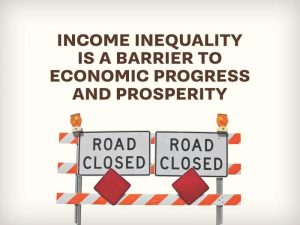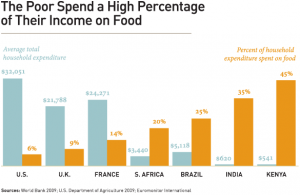When scientists tried boldly to maximize the product and nutrient efficiency of our food over a hundred years ago, we succeeded, but along came the consumption of chemicals through pesticides, highly processed foods, and relative biological uniformity in our diet. These characteristics of our diet have in turn given us everything we need to be biologically healthy, except ironically, the very basic necessity of foods that fight chronic disease: fruits, vegetables, and whole grains.

The reason as to why we are convinced as westerners that what matters most is not the food but the nutrients inside them is in fact due to the growth of industrialization and the thought of previous generations of scientists that eating should foremost be about bodily health. Our logic in being attracted to the western diet however is rooted in America’s quick and efficient consumer lifestyle – propagated by our capitalist economy institutions that inherently reward large corporations, who are treated as equal to human beings under the law by politicians in this country. As a result, many diets are massively influenced by the largest food processing companies such as Nestle, who can subsequently send considerable campaign contributions to politicians in order to influence policy. In the latter half of his book In Defense of Food, Michael Pollan justifies his reasoning that the western diet is sub-optimal to virtually all less processed diets. Along with this, a characteristic of the food problem in the United States is just not thinking consciously about our meals and where they were made or prepared for the sake of saving money, as on average Americans spend roughly 10% of our income on food.

How is our country one of the largest importers and exporters of food, relatively pays the least amount of our income on food, yet is extremely unequal economically?

In answer to your question: Capitalism extends beyond food.